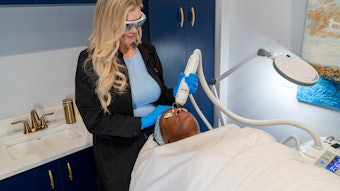
In an effort to objectively rate facelift outcomes, Ben Ahang, BA, Kevin, Chen, MD, et al., performed a study that used artificial intelligence (AI) in the form of convolutional neural network algorithms to measure the visible age reduction before and one year after facelift surgery. They then compared the AI results to FACE-Q patient-reported outcomes. Their findings were published in the Journal of Plastic and Reconstructive Surgery (July 2021).
Related: Acoustic Wave Device Offers Skin Tightening Benefits
The authors used four neural networks (trained to identify age based on facial features) to review standardized preoperative and postoperative (one year) images of 50 consecutive patients who underwent facelift procedures. In addition, the patients completed FACE-Q surveys to rate facial aesthetic outcomes and satisfaction. These scores were then compared to AI-reported age reduction.
The neural network preoperative age accuracy score showed that all four neural networks were accurate in identifying ages. Patient self-appraisals reported greater age reductions than the neural networks age reduction after a facelift (-6.7 years vs. -4.3 years). FACE-Q scores showed a high level of patient satisfaction for facial appearance (75.1 ± 8.1), quality of life (82.4 ± 8.3) and satisfaction with outcome (79.0 ± 6.3). There was a positive correlation between neural network age reduction and patient satisfaction.
Related: How to Treat Facial Thread-Lifting Complications
The authors concluded that AI algorithms can reliably estimate the reduction in apparent age after patients undergo face-lift surgery, and the estimated age reduction correlates with patient satisfaction.











